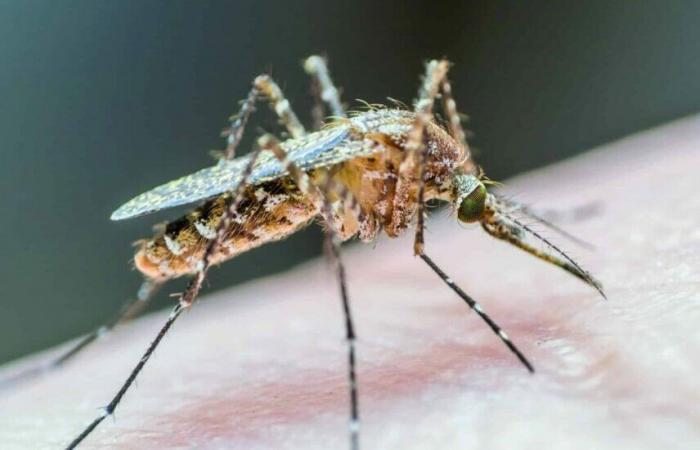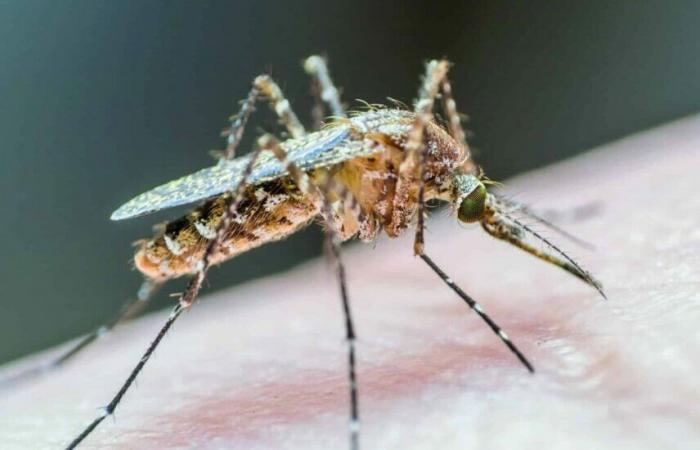Chikungunya, Zika, dengue… these arboviruses arrive in Europe with the mosquitoes that carry them. Global warming doesn’t help. Prevention policies are being put in place.
published on October 3, 2024
Aedes aegypti or yellow fever mosquito feeding blood on human skin, virus carrier spreading dengue, chikungunya, Zika, Mayaro, Malaria epidemic disease
2023 was a “dengue” year, we learn from an article from the BEH which takes stock of the arboviruses recorded in mainland France last year. At 1is January 2023, the tiger mosquito, Aedes albopictusvector of dengue, Chikungunya and Zika viruses, was established in 71 French departments (including Corsica), exposing the population to the risk of local transmission of these arboviruses. In 2023, 2,524 imported cases of dengue, 44 of Chikungunya, 11 of Zika, and 1 dengue-Chikungunya coinfection were reported. The majority of imported dengue cases had stayed in the Antilles. 9 episodes of indigenous transmission of dengue were identified, for a total of 45 infected cases in France. In 2023, the number of imported dengue cases is the highest observed since the system was put in place in 2006. For the first time, transmission was recorded in the northern half of France (Paris region).
Vaccines in the pipeline
Until now, only one dengue vaccine has been approved (Dengvaxia from Sanofi-Pasteur). A second has just been prequalified by the WHO (TAK-003 from Takeda). In addition, the EMA has just approved a first vaccine against Chikungunya: Ixchiq from Valneva Austria.
By visiting our site, you agree to our privacy policy regarding cookies, tracking, statistics, etc.
Accept
Refuse







